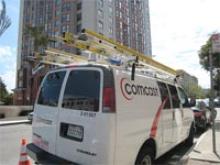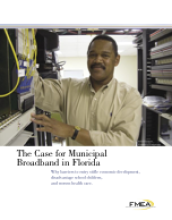Missouri's Consultant, Competition Spurs Investment, and Maine's Middle Mile
A columnist explains why Missouri hired broadband network consultant Jim Baller to aid in expanding broadband across the state.
That won’t be easy. Fewer than two-dozen cable and telephone companies control more than 95 percent of the country’s residential broadband market. In the past decade, the “incumbents” have shut out competitors by restricting the use of their existing infrastructure and by suing any municipality or public utility that has tried to build its own network.
This piece offers some good history for those relatively new to community broadband.
Mike Masnick over at TechDirt recently asked (ironically) "But Wait, Wasn't Muni-Fiber Supposed To Take Away Incentive For Private Fiber?"
Over the past few years, there have been numerous lawsuits by telcos against various municipalities that have decided to launch municipal fiber broadband projects. Most of these lawsuits have failed -- but the main argument from the telcos is that it's unfair to have to compete against the government, and it would take away incentives for the telcos to actually invest in infrastructure to provide for those towns. Of course, that doesn't make much sense.
This article otherwise rehashes the Monticello post we recently ran.
In Maine, Fletcher Kittredge makes the case for a public-private partnership to bring affordable middle-mile access around the state. These ultra-fast connections would not connect directly to home users, but will be open to providers creating those last-mile networks. In the meantime, it will strengthen community institutions like the University of Maine system. This is a project that should be funded by the stimulus program.




